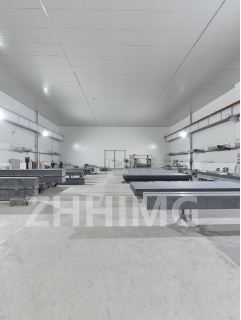Granite Slab: A Key Tool to Improve Measurement Accuracy
In the realm of precision engineering and manufacturing, the importance of accurate measurements cannot be overstated. One of the most effective tools for achieving this level of precision is the granite slab. Renowned for its stability and durability, a granite slab serves as a reliable foundation for various measurement and inspection processes.
Granite, a natural stone, is favored for its unique properties. It is non-deformable, meaning it does not change shape or size under varying environmental conditions, such as temperature fluctuations or humidity. This stability is crucial when conducting measurements, as even the slightest distortion can lead to significant errors. The flatness of a granite slab is another critical factor; it provides a perfectly level surface that ensures consistent and accurate readings.
In manufacturing settings, granite slabs are often used in conjunction with precision measuring instruments such as calipers, micrometers, and coordinate measuring machines (CMMs). By placing these instruments on a granite surface, operators can achieve a higher degree of accuracy in their measurements. The inherent rigidity of granite also minimizes vibrations, further enhancing measurement reliability.
Moreover, granite slabs are easy to maintain and clean, making them a practical choice for busy workshops. Their resistance to wear and tear ensures longevity, providing manufacturers with a cost-effective solution for their measurement needs.
In conclusion, the granite slab is an indispensable tool in the pursuit of measurement accuracy. Its unique properties, including stability, flatness, and durability, make it a preferred choice for engineers and manufacturers alike. By incorporating granite slabs into their measurement processes, businesses can significantly enhance their precision, leading to improved product quality and operational efficiency.
Post time: Nov-01-2024

